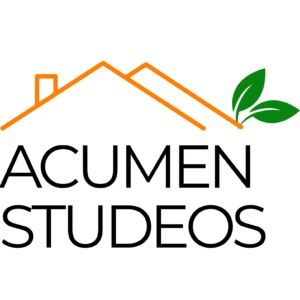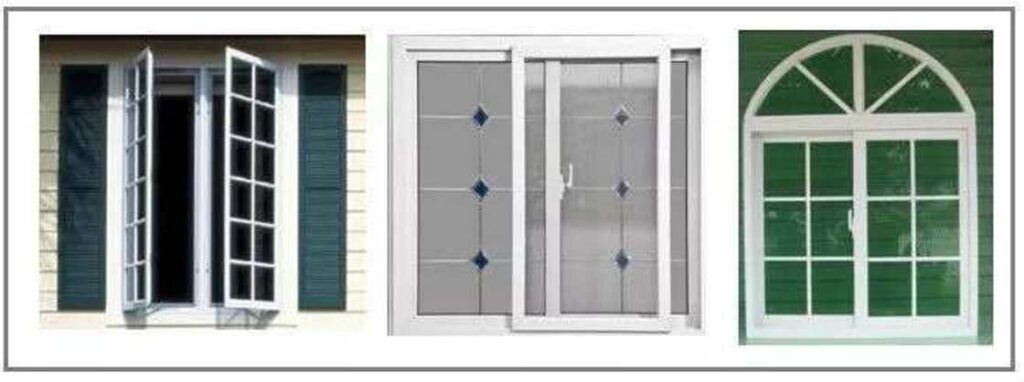A window is an opening in a building that is essential for ventilation, letting in natural light, and creating a visual bond with the environment. Choosing the right window for your residence buildings in Nigeria enhances both the aesthetic values and functionality of the residence. Due to the diverse climate and architectural styles, selecting the right window type is important in Nigeria’s residential and commercial buildings.
This article guides you on the factors to consider when choosing windows that combine practicality with visual appeal. Whether you are constructing a new home or remodelling an existing one, this insight shared here will assist individuals in identifying the most suitable window options, considering the materials available and modern trends.
Popular window types for your home in Nigeria.
1. Sliding Window
Sliding windows, also known as aluminium sliding windows or sliding glass windows, are designed to create horizontal openings along a track. These windows are ideal for maximizing natural light and offering unobstructed views, making them particularly suitable for contemporary designs and large openings. While they provide about 50% of the airflow needed for proper ventilation in the building, their aluminium frames with glass panels ensure durability, minimal maintenance, and an enhanced finish for the building. Their space-saving design, ease of use, and aesthetic appeal have made sliding windows increasingly popular in Nigeria.
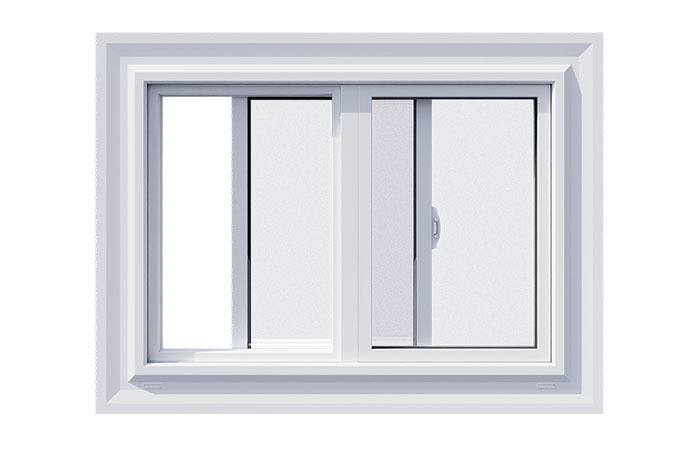
2. Casement window
Casement windows open outward and feature a crank or handle for easy operation and secure locking. Durable frames, such as aluminium and uPVC, pair with single-glazed or double-glazed glass to improve insulation. This window type complements both modern and traditional architectural styles while also enhancing security through a multi-point locking system for security to the building. Many consider this window one of the best options for homes in Nigeria due to its enhanced safety features and excellent ventilation capabilities. They allow for maximum airflow by utilising the entire opening space for cross ventilation to the space. It’s important to consider casement windows as homeowners because they consist of both functional requirements and aesthetic desires that result in a comfortable space.
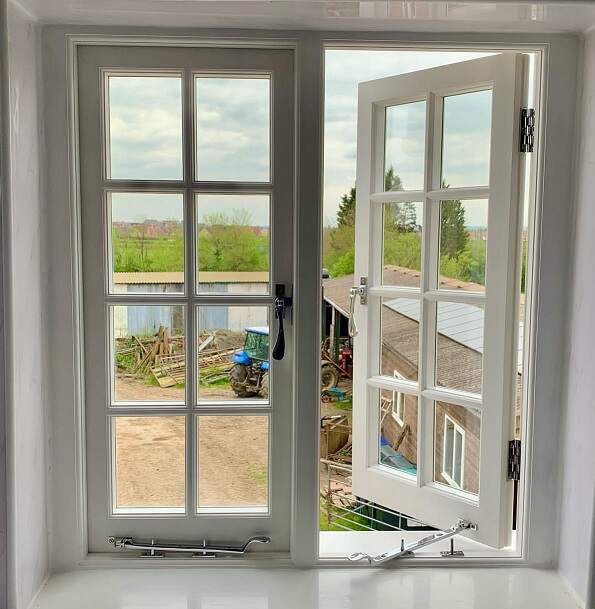
3. Louvre windows
This window, also known as a jalousie window, features horizontal blades made from glass, aluminium, or wood. You can adjust the blades to control ventilation and light in the space. Use louvre windows in areas like kitchens, bathrooms, and other spaces that require good ventilation. However, louvred windows are less energy efficient than other types of windows because of the gaps between the blades. However, louvred windows are less safe but remain a popular choice in Nigeria because their ability to blend with various architectural styles makes them both functional and aesthetically pleasing for residential and commercial buildings.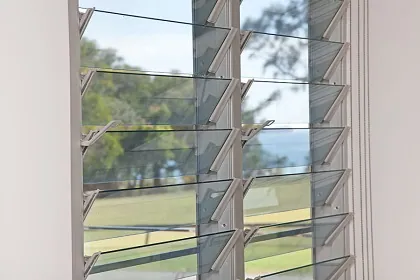
4. Bay and bow windows
A window that projects outward from a building’s exterior wall to create a curved or angular appearance is known as a bay and bow window. Bay and bow windows provide both functional and decorative purposes, such as helping to expand space, enhancing ventilation, and increasing natural light. Bay and bow windows are less common in Nigeria due to their high installation cost and space requirements.
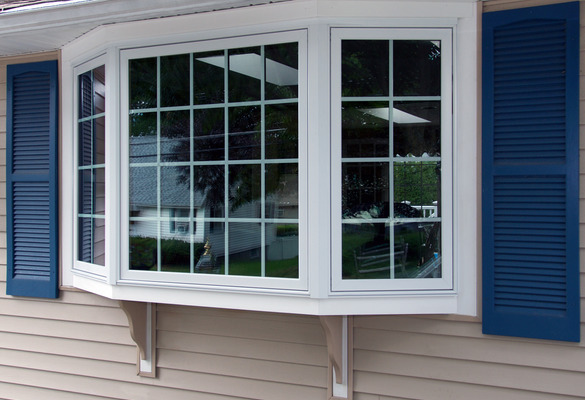
5. Fixed Windows
Also referred to as picture windows or non-operable windows, they are good for maximising natural light into the space, and they’re ideal for spaces where ventilation is not primary. Fixed windows can’t be opened or closed but are very good for achieving aesthetics for the building. Fixed windows come in various shapes, which makes it easy to incorporate them into any architectural design. For commercial spaces, this window type is good for showrooms, offices, or shopfronts where showcasing the interior or maximising natural light is desired. For heat and noise insulation, fixed windows with appropriate glazing help reduce external noise and limit heat entry.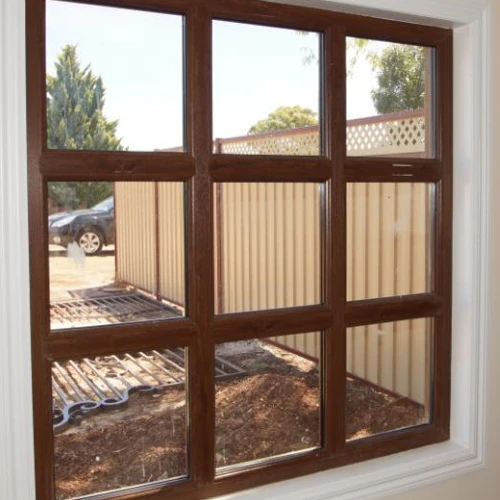
6. Smart or automated windows
This type of window allows remote control through technology, enhancing comfort, energy efficiency, and convenience. In Nigeria, the adaptation of smart windows is growing, especially in luxury homes, offices, and commercial spaces. Smart or automated windows are made of smart glasses that help reduce solar heat gain, maintaining cooler interiors.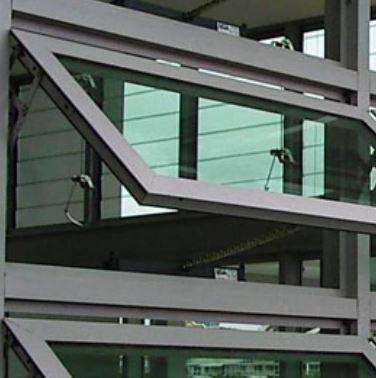
7. Awning window
Awning windows are similar to casement windows because they have both hinged and crank windows. Awning windows are designed to provide ventilation and open outward from the bottom, and they’re hinged at the top. This unique design creates a slanted awning-like effect when open to prevent direct sunlight and rain while allowing for ventilation. People often use this window in bathrooms, kitchens, and other areas that require moisture control and airflow. Their compact size and modern aesthetic make them suitable for both residential and commercial buildings.
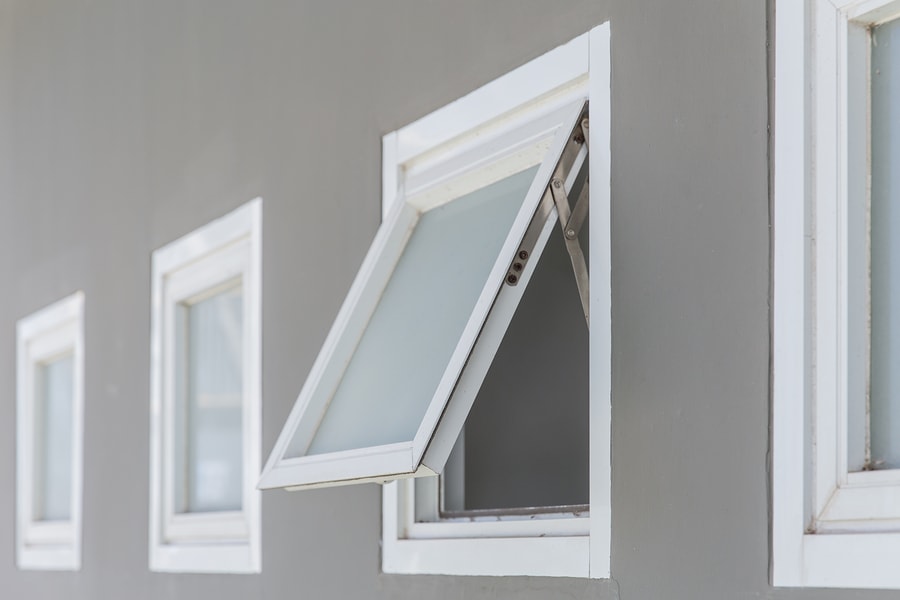
Top mistakes made by Nigerians when selecting windows for homes
1. Neglecting security features
Security is one of the overlooked factors when selecting windows for your home in Nigeria. Many windows in buildings have basic locks that can be forcefully opened; however, multi-point locking systems in windows like casement windows enhance security. The selection of reinforced or laminated glass over regular glass is crucial because regular glass is prone to breaking. Investing in strong frames, reinforced glass, and advanced locks is one of the necessities when choosing the right window for your building. Choosing the right window for your residence buildings in Nigeria ensures a balance between security, functionality, and aesthetics.
2. Selecting an inappropriate window material
The various window materials that can be used include aluminium, steel, uPVC (unplasticized polyvinyl chloride), and treated wood. These materials create a balance between achieving aesthetics and low maintenance. Professional advice will help ensure you pick window materials that align with your home’s specific requirements.
3. Ignoring the need for maintenance
Overlooking maintenance requirements can increase cost and the short lifespan of the window, but when not overlooked, you will be able to enjoy long-lasting and functional windows that enhance your home’s comfort and value.
4. Overlooking Nigeria’s climate
Overlooking Nigeria’s climate when selecting window type can affect the comfort, durability, and energy efficiency of your house. It’s best you understand regional climate and choose weather-resistant materials for your building.
Conclusion
Windows does more than provide openings; it balances functionality, security, and aesthetics in a home. Choosing the right window means avoiding mistakes such as neglecting security features, poor material selection, and ignoring maintenance needs. You must also consider Nigeria’s climate when making the right window choice.
Choosing the right window for your residence buildings in Nigeria carefully ensures a balance between style, functionality, and comfort. Carefully select your window type from the various options available, and seek professional advice when needed. Apart from achieving good ventilation and natural lighting, the right window type also improves the aesthetic value and comfort of the home.
Finally, whether you are building a new house or remodelling an existing one, the window you choose will impact your living experience, making it an investment worth thorough consideration, which will reflect your unique styles and needs.
